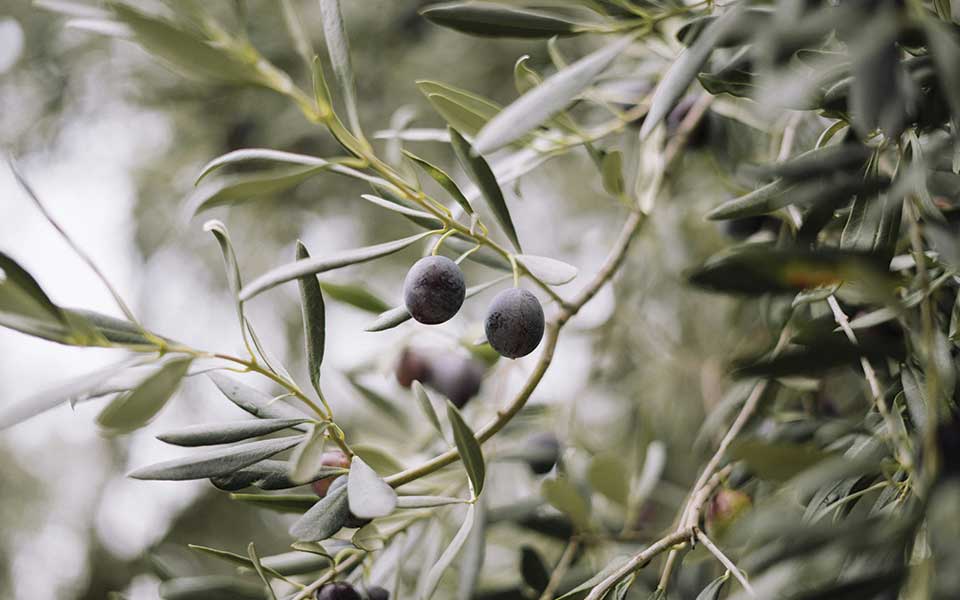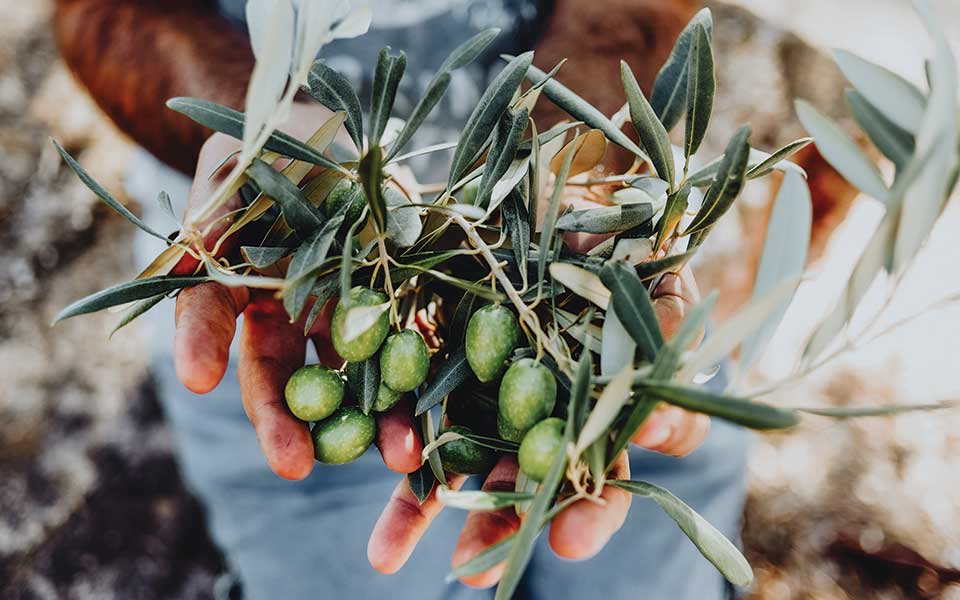Dr. Frank Hu, a Harvard nutrition expert, highlights the health and sustainability benefits of the Mediterranean diet, emphasizing extra virgin olive oil.
Growing up in China, Frank Hu followed a traditional Asian diet. Now the chair of the Department of Nutrition at Harvard T.H. Chan School of Public Health and professor of medicine at Harvard Medical School, Dr. Hu researches the benefits of extra virgin olive oil and the traditional Mediterranean diet and enjoys a fusion of Asian and Mediterranean cuisines.
Between his youth in China and his remarkable career as a professor and researcher at the School of Public Health and the Medical School, Hu and his wife found time to travel in Europe and “became very passionate about the Mediterranean diet” and culture. Hu points out that the traditional Mediterranean and Asian diets are both healthy, plant-based diets that include plenty of vegetables, fruit, whole grains, legumes, nuts, fish, and herbs and spices. Of course, there are also differences. The Med diet features olive oil, olives, red wine, and coffee, while the Asian diet highlights soy, green tea, and seaweed.
Hu likes to “combine the different elements. Now we use olive oil for everything, and I cannot live without coffee, but I consume a lot of traditional Asian foods,” mainly prepared with extra virgin olive oil. His meals range from Greek salad and al dente pasta to fish and “modified traditional Chinese dishes like tofu and chicken with olive oil and Mediterranean herbs and spices.”
While he extols the flavor and health benefits of extra virgin olive oil, Hu believes that with olive oil consumption traditionally low in areas where olive trees do not grow, such as Asia, other oils such as soybean and canola can be used as part of culturally-appropriate, affordable healthy eating plans.

“There’s no one-size-fits-all diet. All the good ones can be adapted. You can mix and match elements to create your own fusion diet to improve healthy aging and longevity, increase your lifespan and your healthspan, and live better as well as longer, with fewer disabilities and better mental health.” He appreciates the “global trend of increased consumption of healthy, plant-based foods, no matter where they come from.”
These are the words of a true expert on healthy eating, an acclaimed professor and researcher at Harvard and a member of the National Academy of Medicine. Hu’s many honors include awards from the American Heart Association and the American Diabetes Association. Among other prestigious positions, Hu served on the 2015 Dietary Guidelines Advisory Committee for the USDA/HHS.
Receiving the Lifetime Achievement Award in Public Health at the 3rd Cretan Lifestyle Conference at Amirandes Resort near Heraklion, Crete, Greece, Hu delivered a keynote speech in which he explored the question “Is olive oil unique among plant oils for reducing morbidity and mortality?” Although in a sense the answer is “yes,” since olive oil clearly offers benefits for both human and planetary health, the issue is a bit more complicated, especially for people living outside the Mediterranean region.

Most studies on olive oil consumption have been done in Europe, but Hu and his team published the first results about the U.S., where olive oil consumption is low. They were able to study its effects only because they had a large sample size: 61,181 women from the Nurses’ Health Study (1990 to 2014) and 31,797 men from the Health Professionals Follow-up Study (1990 to 2014). Researchers found that even moderate consumption of olive oil, just over ½ tablespoon per day (>7 g), was associated with a lower risk of cardiovascular disease (CVD), a lower risk of developing diabetes, and a lower risk of all causes of mortality during the duration of the study.
Using data from the same studies, Hu reported that “compared with those who never or rarely consume olive oil, those in the highest category of olive oil consumption (>7 g/day) had 19% lower risk of total and CVD mortality, 17% lower risk of cancer mortality, 29% lower risk of neurodegenerative mortality, and 18% lower risk of respiratory mortality. Substituting 10g/day of other fats, including margarine, butter, mayonnaise, and dairy fat, with olive oil was associated with reductions in the risk of total and cause-specific mortality.”

© Melina Kiefer/Unsplash
So there is extensive evidence that olive oil has significant health benefits. There is also good evidence that other plant oils, such as soybean oil, sunflower oil, and canola oil offer cardiovascular benefits, including reducing LDL cholesterol. However, olive oil appears to have the strongest inverse association with mortality among all dietary fats. Does this mean that olive oil is superior to other plant oils in preventing chronic diseases and early death? Hu cautions that the statistical difference is not significant enough to draw a definitive conclusion on this claim. Results are also variable, he reports, in different intervention trials on other beneficial effects of olive oil. Some studies find that olive oil improves biomarkers regarding blood sugar control and insulin levels, while other studies do not indicate such benefits.
Hu suggests that there could be several reasons for the unclear general picture: some trials were very small, the duration of interventions was often quite short, and there are wide variations in doses and types of olive oil and in what is given to control groups for comparison. It is like comparing apples and oranges. When researchers do not distinguish between extra virgin and refined olive oils, but only assess total olive oil consumption, we cannot expect the same result as we would see in a study of the health benefits of extra virgin olive oil (which is more often used in Europe than in the USA).
Hu pointed out that such an olive oil substitution can also substantially reduce the risk of getting cardiovascular disease and type 2 diabetes. He emphasized that the type of fat we eat is more important than the amount of fat, with trans fat associated with the worst health outcomes, saturated fat not as bad but also associated with an increased risk of CVD and premature mortality, and unsaturated fats associated with reduced health risks. Hu added that the Mediterranean diet with extra virgin olive oil has been linked to improved cognition. Higher olive oil intake is also associated with a 28% lower risk of fatal dementia. Interestingly, this remained true even for those who do not consume a high quality diet overall.
While olive oil’s superiority to saturated fat is clear, Dr. Frank Hu asserts that much larger, longer, carefully designed studies are needed to clarify several points of comparison between olive oil and other vegetable oils, as well as olive oil’s effects on human health. However, he believes it is already obvious that extra virgin olive oil (the healthiest grade of olive oil) comes out ahead of other dietary fats in various ways: it is rich in heart-healthy oleic acid, it contains unique polyphenols with anti-inflammatory benefits, it is more eco-friendly than most plant oils, and it has deep historical and cultural roots in Mediterranean societies.
As Hu reminds us, “olive oil is a hallmark of the traditional Mediterranean diet; it has been known as liquid gold since ancient times.” If we removed olive oil from the Med diet, he says, the diet’s famous health benefits would be much reduced. Moreover, “olive trees are Mother Earth’s gift to humanity. They play an important role in preservation of natural resources and biodiversity, since they can grow in difficult conditions and don’t require much water.” For our own good and for the planet, Hu recommends a healthy diet rich in extra virgin olive oil whenever possible, while emphasizing the importance of cultural adaption in dietary practice.
Originally published on Greek Liquid Gold: Authentic Extra Virgin Olive Oil (greekliquidgold.com).









